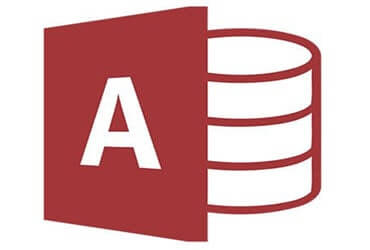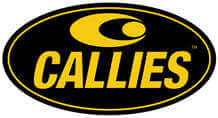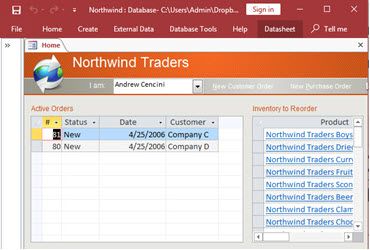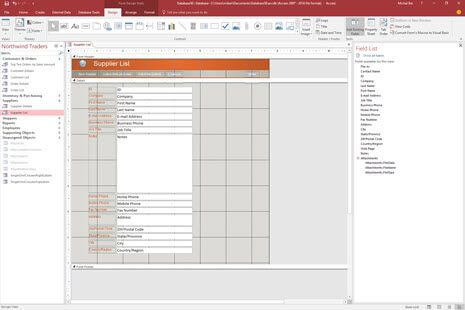
MS Access As A Dev Tool
Access continues to be a highly efficient tool for business database development.
The Best Microsoft Access Database Solutions owner, consultant, and principal programmer is Alison Balter - a recognized expert Microsoft Access consultant. Alison is the author of 15 Microsoft Access training books and videos. She is a frequent guest speaker at MS Access conferences and has developed hundreds of applications for businesses of all types.
We know your business data is important; we listen to your concerns, ask questions, and gather information from all stake holders. We discuss your needs and requirements for your database. We find out what you want, why you need various features so we can obtain as much information as possible. Once we have the information we need, we work with you to design the proper database architecture, plus the dashboards, the questions (queries), forms, and reports you need for an excellent database system.

We also create websites designed for speed to display your data accurately, using ASP.NET technology. Fast, secure, and robust, our ASP.NET web sites and web applications give you true business tool for finding and displaying information dynamically on the web.








Access continues to be a highly efficient tool for business database development.

How to create a Microsoft Access application with some unique tips and tricks.

Your Access developer near me has some great info for you about using Access efficiently.
I remember the first time I helped a client move their Access database to SQL Server. They were skeptical about changing a system that had worked for years, but their growing pains had become unbearable. Today at MS Access Solutions, we've guided hundreds of organizations through this critical transition, and I've seen firsthand how it transforms database applications from desktop solutions into robust enterprise systems. While the technical details matter, I've learned that your strategic approach truly determines whether your migration succeeds or fails.
Nobody starts with SQL Server right out of the gate. Most of our clients begin with Microsoft Access because it lets them build solutions quickly with minimal infrastructure. Access serves them beautifully until they hit specific roadblocks that signal it's time for something more powerful.
The 2GB file size limit is often the first warning sign. Last year, a manufacturing client called us in a panic when their inventory system started corrupting data as they approached 1.8GB. Another common trigger is performance issues with multiple users. An accounting firm we worked with found their month-end processing had stretched from hours to days as they grew to 15 simultaneous users. Security concerns also push many organizations toward migration, especially when compliance requirements enter the picture.
The beauty of moving to SQL Server is that you don't have to throw away your Access investment. Your forms, reports, and business logic can continue working while your data moves to a more robust platform. One client described it perfectly: "It's like we upgraded the engine without having to learn to drive a new car."
I always tell clients that preparation determines success. Start by thoroughly documenting your existing Access database. Map out every table, relationship, query, and especially any custom VBA code. Look carefully for Access-specific features that might not translate directly to SQL Server.
When designing your SQL Server structure, resist the temptation to simply copy your Access tables. This migration presents a perfect opportunity to clean house. We helped a healthcare provider normalize their patient records during migration and discovered they had seven different phone number fields scattered throughout their database! Consolidating these into a properly related contact table not only improved their data quality but made future changes much simpler.
Your timeline should include a period where both systems operate in parallel. This approach saved a financial services client from disaster when we discovered their custom date calculations weren't translating correctly during testing. Had we gone straight to cutover, their quarterly reporting would have contained serious errors.
You have several options for the actual migration. Microsoft's SQL Server Migration Assistant (SSMA) works well for straightforward databases, but I've found it struggles with complex Access applications that use extensive VBA or specialized features.
For more sophisticated systems, we typically use a phased approach. We start with the Access upsizing wizard for initial table migration, then manually refine the SQL Server objects. This gives us greater control and lets us leverage powerful SQL Server features like stored procedures and triggers that simply don't exist in Access.
Don't overlook your front-end strategy. Most of our clients maintain their Access interface while connecting to SQL Server through linked tables or pass-through queries. This approach preserves their investment while gaining SQL Server's robust data management. For a retail client, we kept their familiar Access forms for store staff while adding a web portal that accessed the same SQL Server database, giving management real-time sales visibility they never had before.
Every migration has its hurdles, but certain issues appear consistently. Data type compatibility often creates headaches, especially with date/time fields and text fields that exceed SQL Server's limitations. We solve these through careful mapping and transformation during the migration process.
Performance tuning becomes essential after migration. SQL Server's query optimizer thinks differently than Access's, sometimes requiring query restructuring for optimal speed. We typically implement server-side views and stored procedures to replace complex Access queries, which both improves performance and simplifies front-end code.
Security implementation needs special attention. SQL Server offers more sophisticated options than Access, but this means more complex configuration. We develop security plans that map existing Access permissions to appropriate SQL Server roles while strengthening overall data protection.
After migration, your maintenance approach will change. You'll need regular backup procedures, index maintenance, and performance monitoring. Many of our clients implement development/testing/production environments that weren't practical with their Access-only solution.
Training requirements vary by role. Database administrators need to learn SQL Server management tools, but end users working with the Access front-end often need minimal retraining since their interface remains largely unchanged.
I always remind clients that migration is just the beginning of their data strategy evolution. Once your data lives in SQL Server, you gain access to advanced business intelligence tools, improved integration capabilities, and a foundation for future growth. The manufacturing client I mentioned earlier eventually added Power BI reporting and mobile access capabilities that transformed how they managed inventory across multiple locations.
With thoughtful planning and execution, migrating from Access to SQL Server doesn't just solve today's problems; it positions your organization for long-term success while protecting the investments you've already made in your Access applications.
When you need an expert Access programmer for your Redondo Beach, California, business contact us at (323)285-0939. We have 29+ years experience with Access programming.MS Access Solutions has been developing custom programming code using VBA. As an Expert Microsoft Access to SQL Server migration programmer we transfer desktop Access applications into robust SQL Server solutions. With decades of experience, we know how to balance preserving familiar Access interfaces while leveraging SQL Server's enterprise-grade capabilities. MS Access Solutions excels in optimizing query performance, implementing proper security protocols, and ensuring seamless data migration. Our client-server implementations dramatically reduce network traffic while supporting larger datasets and concurrent users. For businesses outgrowing Access's limitations, we provide the strategic guidance and technical proficiency to execute migrations that protect existing investments while enabling future growth.
Get more information about MS Access Solutions programming services on the Microsoft Access programmer Rolling Hills Estates, California web page.